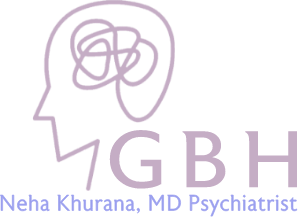
- February 13, 2025
Understanding TMS Therapy: A Breakthrough Treatment for Mental Health
Understanding TMS: A Revolutionary Approach to Mental Health Care
Mental health conditions like depression can profoundly affect one’s quality of life, especially when traditional therapies, such as medication and talk therapy, fail to provide relief. For individuals facing treatment-resistant depression and other mental health challenges, Transcranial Magnetic Stimulation (TMS) offers hope.
TMS treatment is a non-invasive, FDA-approved procedure that uses magnetic fields to stimulate specific areas of the brain, providing relief for those who haven’t found success with conventional treatments. This blog will explore how TMS works, its benefits, and what you can expect from the treatment process.
What is TMS Therapy?
Transcranial Magnetic Stimulation (TMS) is a cutting-edge mental health treatment designed for individuals who have not responded well to medications or therapy alone. Unlike many other treatments, TMS doesn’t require anesthesia or sedation and is performed in an outpatient setting.
During TMS sessions, magnetic pulses target specific areas of the brain associated with mood regulation. These pulses help stimulate nerve cells, restoring normal brain activity and alleviating symptoms of depression and other conditions.
Key Benefits of TMS Therapy:
- Non-invasive, safe, and effective.
- Does not require medications or sedation.
- No downtime—patients remain awake and alert during sessions.
- FDA-approved for treating depression and other resistant mental health conditions.
One Conversation Can Change Everything! Consult Dr. Neha Khurana for
How Does TMS Work?
TMS therapy uses a specialized magnet to deliver magnetic pulses to specific areas of the brain. These pulses help stimulate nerve cells that may not be functioning properly due to mental health conditions. By targeting these areas, TMS helps regulate brain activity and alleviate symptoms like mood instability, lack of motivation, and feelings of hopelessness.
Unlike traditional treatments, TMS directly impacts the brain without the systemic side effects often associated with medications.
What Can TMS Treat?
TMS is primarily FDA-approved for major depressive disorder (MDD) that is resistant to traditional treatments, but its potential benefits extend beyond depression treatment. Ongoing research and clinical applications suggest TMS can help with:
- Anxiety disorders
- Post-traumatic stress disorder (PTSD)
- Obsessive-compulsive disorder (OCD)
- Chronic pain conditions
- Bipolar disorder
- This versatility makes TMS an innovative and promising treatment option for individuals with various mental health needs.
The Process Leading Up to TMS Treatment
Starting your TMS journey may feel daunting, but the process is straightforward. Here’s what you can expect:
- Initial Screening Appointment A coordinator will contact you to schedule a 15-minute screening appointment. This can be conducted virtually, over the phone, or in person.
- Evaluation by a TMS Physician If the coordinator determines you’re a candidate for TMS, they’ll help you schedule an appointment with one of our TMS physicians. During this consultation, your medical history and current symptoms will be thoroughly reviewed to confirm TMS is the right treatment for you.
- Insurance Approval Once approved as a candidate, our office will work with your insurance provider to handle the pre-authorization process. This ensures you can focus on your treatment journey without added stress.
One Conversation Can Change Everything! Consult Dr. Neha Khurana for
What to Expect During TMS Treatment
After approval, your TMS treatment begins. Here’s a breakdown of what you can expect:
The First Appointment
The first session, also called the “Mapping Appointment,” is slightly more involved than subsequent treatments. During this session:
- A TMS technician and physician will fit you to the machine to ensure proper comfort and alignment.
- The "mapping" process identifies the precise areas of your brain to target for treatment.
Subsequent Appointments
- Treatment sessions take place five times a week for four to six weeks.
- Each session lasts around 20-40 minutes.
- Patients can resume their daily activities immediately after treatment, as there is no downtime.
Key Reminders for TMS Treatment
- Arrive 10 minutes prior to your appointment.
- Wear comfortable clothing.
- Avoid bringing food or drinks into the treatment room.
- Continue seeing your regular provider for ongoing care outside TMS appointments.
Why Choose TMS Over Traditional Treatments?
- While medications and therapy are effective for many individuals, they don’t work for everyone. TMS offers a unique alternative for treatment-resistant conditions, with benefits that include:
- Targeted Relief: By focusing on specific brain areas, TMS provides targeted treatment without affecting the entire body.
- Minimal Side Effects: Unlike medications, which can cause weight gain, fatigue, or sexual dysfunction, TMS has minimal side effects. Some patients may experience mild scalp discomfort or headache, which typically resolves quickly.
- Non-Invasive and Convenient: No surgery, needles, or anesthesia is involved. Sessions are quick and fit into your daily routine.
- Evidence-Based Results: Studies show TMS can significantly improve symptoms of depression and other conditions, even for those who have tried multiple treatments without success.
TMS at Georgia Behavioral Health
At Georgia Behavioral Health, we are proud to offer TMS therapy at our Norcross and Suwanee locations. Our team is dedicated to guiding you through every step of your TMS journey, from the initial consultation to your final session.
TMS therapy is covered by most major insurance plans, making it an accessible option for many individuals. If you’re unsure about coverage, our team will work with your provider to ensure you receive the care you need.
Why TMS is the Future of Mental Health Treatment
TMS represents a significant step forward in mental health care. By addressing the root causes of mental health conditions at a neurological level, TMS empowers patients to achieve lasting relief and reclaim their quality of life.
With its safety, efficacy, and versatility, TMS offers a bright future for individuals struggling with mental health challenges. Whether you’ve experienced limited success with traditional treatments or are seeking an alternative, TMS could be the solution you’ve been searching for.
Take the First Step Toward Healing
Are you ready to explore TMS therapy? Contact Georgia Behavioral Health today to schedule a consultation.
